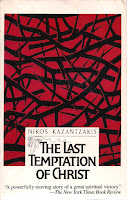
Those adolescent urges that so many of us have for top approval, perfect security, and perfect romance --- urges quite appropriate to the age seventeen --- prove to be an impossible way of life when we are at age forty-seven.
The Best of Bill:
Love (The next frontier:
Emotional Sobriety), pp. 52-53
~
This day of the year is devoted to romantic love as a Hallmark Holiday in these parts of the world. Valentines Day was once a day of contempt for love’s labor lost because of my failure at holding on to whatever is meant by love. It is also the day, February 14th of 1985, that I packed my ex, our daughter and two dogs into the car to bid them farewell so many years ago. I swore then that I’d never invest so thoroughly in love again.
It is also a date that gives me pause because I realized, somewhere around the age of thirty, that I had no practical concept of love between two people. Love, to me, was more akin to dependency… first, as a child for its parents and a weird co-dependency, one for another, in any relationship. Until the day our daughter was born I had no real appreciation or knowledge for that bonding that arose naturally from the depths of our being: the mother for our daughter and an enlightened love for both the daughter and her mother on my part. From the day of birth on, my experience of love has been a process of letting go as our child grew from her infancy. Because of our eventual divorce, the necessity of letting go of that irresistible possessiveness of grasping, for my own mental health’s sake, became an imperative.
Who hasn’t suffered heart break at one time or another in our lives? The wisdom of the Heart of Compassion is vast and incomprehensible. We who have tasted and lost the embrace of love are fortunate in that we have an opportunity to experience what love is actually about. Some of us get it sooner than later. For myself, I had to work on the Twelve Steps of Alcoholics Anonymous before I got a better understanding of mature love. Emotional sobriety is growing out of a spiritual awakening that can only be compared to the helplessness I felt as I stood aside her mother going through labor when our daughter was born and took her first breath.
Today I am most fortunate that I have invested heart for heart in love once more. It could have never happened.
geo 5,262



















.jpg)





